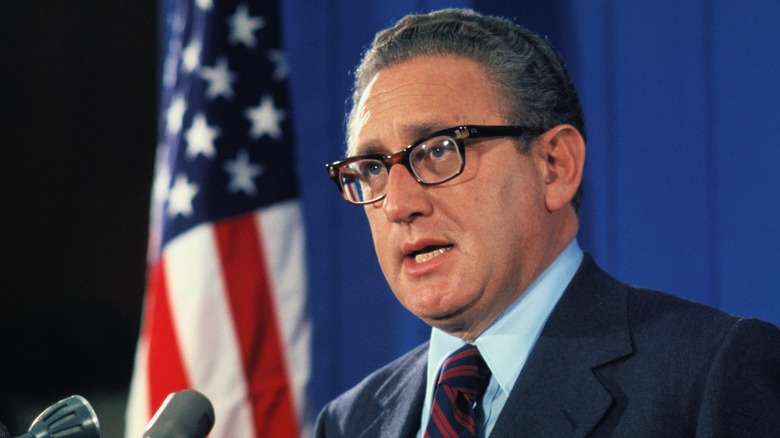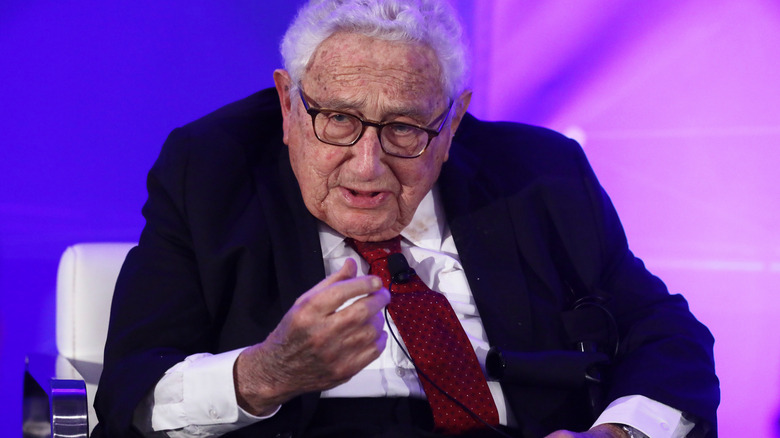Henry Kissinger, US Diplomat, Dead At 100
Former Secretary of State Henry Kissinger, the diplomat who clinched the 1973 Nobel Peace Prize for his instrumental role in bringing about the conclusion of the United States' participation in the Vietnam War, has died. He was 100 years old.
His passing was confirmed by his consulting firm Kissinger Associates on November 29, but no specific cause of death was disclosed with the announcement, per Reuters. Kissinger was notably active up until the final year of his life, visiting China as recently as July 2023. Over the course of his extensive, controversial career in politics, he left a significant impact on U.S. foreign policy. He was known for advocating for "realpolitik," which focuses on practicality rather than morality, an approach that reputedly bolstered the nation's economic and military prowess. While he had drawn staunch critics through the years, Kissinger had managed to make huge strides in international politics, including using tactics to ease tensions in the Middle East, engaging in negotiations with China during the Cold War and having them open up to the Western world.
He shared the 1973 Nobel Peace Prize with North Vietnam's Le Duc Tho when they successfully negotiated a ceasefire and pulled the U.S. out of Vietnam. Kissinger reportedly accepted it "with humility," and used his prize money to launch a scholarship fund for the children of American soldiers who were killed in the war. "The Vietnam war was the cause of so much anguish the world over that any part I may have played in ending that war is its own reward," he said at the time (via the New York Times).
News of Kissinger's death draws mixed reactions
As the news of Henry Kissinger's death reverberated around the globe, reactions varied widely, which is indicative of the polarizing nature of his political legacy. One of the first people to pay to pay their condolences was former President George W. Bush, who said in a statement: "America has lost one of the most dependable and distinctive voices on foreign affairs with the passing of Henry Kissinger."
Many people on social media did not mince their words following the news of Kissinger's death, criticizing the choices he made while in power. "He was a master of diplomacy, but also a war criminal," one netizen tweeted, while another critic said: "Seeing a lot of unkind words about Henry Kissinger. But not nearly enough."
Despite the criticisms leveled against him, Kissinger remained steadfast in his past decisions, no matter how grave the ripple effects some of them had created. During a talk at the Lyndon B. Johnson School in 2006, he acknowledged that "mistakes were made" during the Vietnam War, but he wouldn't change a thing. "We acted on the basis of our best judgment at the time. One should stand by one's decisions," he said (via The Daily Texan).


